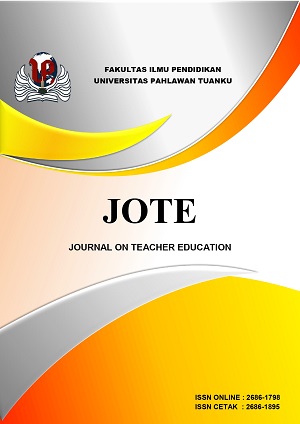Menghindari Plagiarisme dengan Pemahaman Etika Mengutip dari Sudut Pandang Information Technology ethic, Regulation and Cyber Law
Abstract
Keywords
Full Text:
PDFReferences
Fadilla, A. R., Haryadi, H., & Rapik, M. (2023). Plagiarisme Karya Ilmiah Dalam Kacamata Hukum Pidana. PAMPAS: Journal of Criminal Law, 4(1), 141–157.
Fransantoso, E. (2023). Penegakan Hukum terhadap Plagiarisme Karya Ilmiah Sebagai Upaya Pencegahan dan Penanggulangan Plagiat di Perguruan Tinggi. Jurnal Ilmu Hukum The Juris, 7(1), 220–227.
Hadi, A. S., & Khairi, A. (2020). Pemilihan Strategi Pemasaran di Era Digital pada Kelompok Ibu PKK Desa Gadingharjo. Dinamisia: Jurnal Pengabdian Kepada Masyarakat, 4(1), 127–132.
King, M. R. (2023). A Conversation on Artificial Intelligence, Chatbots, and Plagiarism in Higher Education. Cellular and Molecular Boengineering, 16(1), 1–2.
Magdalena, L., Lie, R., Chandra, D., & Perdana, N. J. (2023). Kesadaran Akan Tindakan Plagiarisme Di Kalangan Mahasiswa. Jurnal Serina Sains, Teknik Dan Kedokteran, 1(1), 123–132.
Ruslan, R., Hendra, H., & Nurfitriati, N. (2020). Plagiarisme dalam Penulisan Karya Ilmiah Mahasiswa: Proses, Bentuk, dan Faktor Penyebab. Kreatif: Jurnal Pemikiran Pendidikan Agama Islam, 18(2), 147–160.
Sugianto, F. A., & Marpaung, D. S. H. (2022). Efektivitas Peranan Mediasi Dalam Upaya Alternatif Penyelesaian Sengketa Kekayaan Intelektual. Jurnal Meta-Yuridis, 5(1), 51--59.
Syafruddin, S., Suharli, S., Adnan, A., Suhendra, R., Aini, R. Q., & Merdekawaty, A. (2021). Tips dan trik bebas plagiasi dalam menyusun tugas akhir (pelatihan dan pendampingan peningkatan kemampuan mahasiswa dalam menghindari Plagiarisme). KARYA: Jurnal Pengabdian Kepada Masyarakat, 1(2), 34–37.
Waldelmi, I., Aquino, A., & Listihana, W. D. (2023). Pelatihan Pencegahan dan Menekan Plagiarism Penulisan Ilmiah. Jurnal Abdimas Bina Bangsa, 4(2), 937–948.
Winantika, E. Y., Febriyanto, B., & Utari, S. N. (2022). Peran Media Sosial Dalam Pembentukan Karakter Siswa di Era Digital. Jurnal Lensa Pendas, 7(1), 1–14.
Winoto, T. P., & Ali, S. (2024). Ancaman Hukum Pidana Plagiarisme Sebagai Literasi Hukum Dalam Dunia Pendidikan. JAMHI: Jurnal Akuntansi Manajemen Hukum Informatika, 1(2), 44–52.
DOI: https://doi.org/10.31004/abdira.v5i1.549
Refbacks
- There are currently no refbacks.
Copyright (c) 2025 Ranggi Praharaningtyas Aji, Ilham Albana, Rafii Nur Akmal, El Syafangatun Aulia Difa

This work is licensed under a Creative Commons Attribution-ShareAlike 4.0 International License.





1.png)
